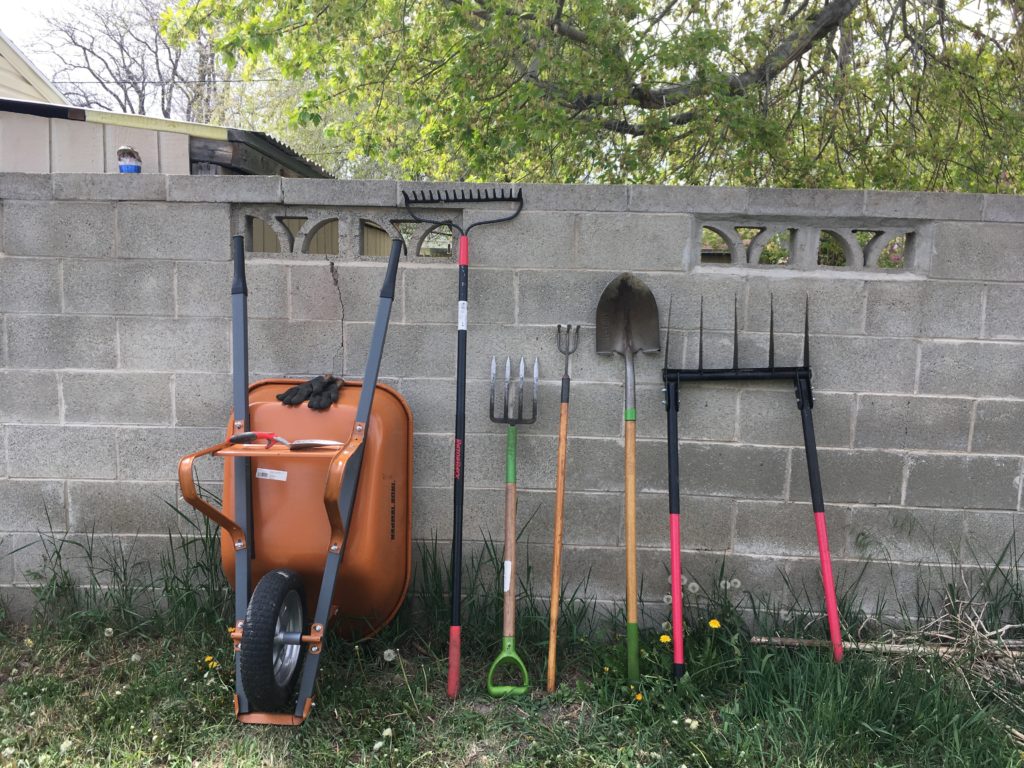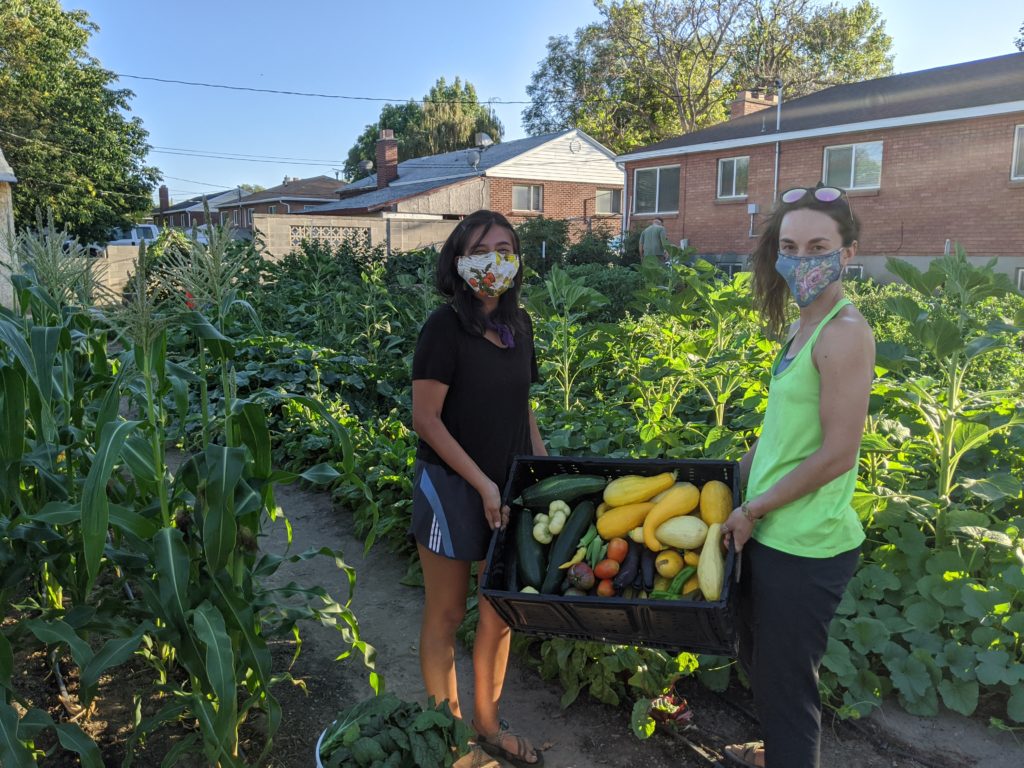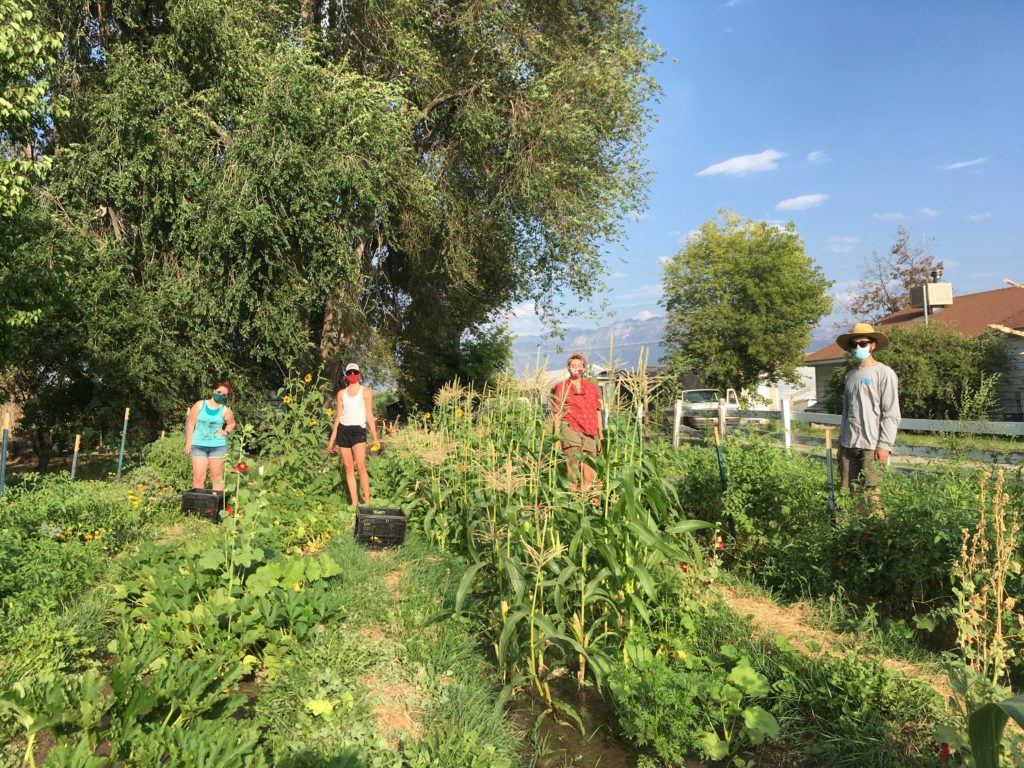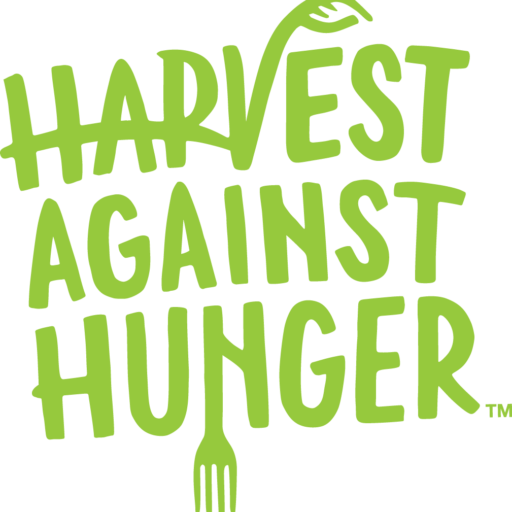How Can We Help?
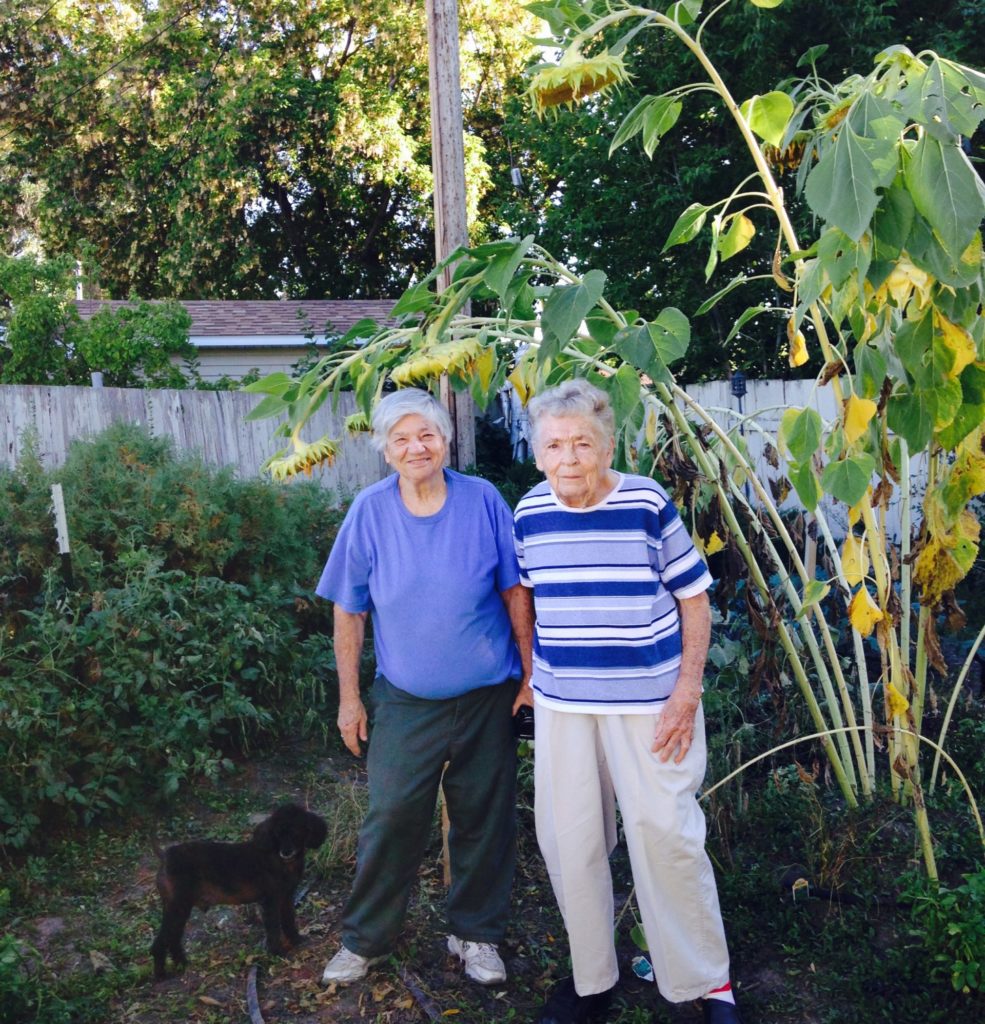
Garden Education
The Back-Farms program is an ongoing yard-sharing initiative that connects low-income or disabled seniors with volunteer Garden Apprentices, who then work together to convert surplus backyard space into productive urban farms. Through the Garden Apprentices’ hard work and the homeowners’ land resources, the Green Urban Lunch Box (GULB) helps transform underutilized yards into fertile, food-producing gardens. During the weekly gardening sessions, the senior and volunteers form lasting, nurturing relationships while also beautifying Salt Lake neighborhoods and producing healthy, local food. The food harvest is divided evenly between the homeowner, the volunteers, and hunger relief organizations. The GULB staff member, Garden Leader, trained in organic practices and effective high-desert growing techniques supervises all participating gardens.
During January and February GULB recruits new gardens and volunteers for the upcoming season. Potential gardening locations are assessed based on how well the candidates align with the program objectives: reaching low-income seniors, underserved populations, and food-insecure neighborhoods. Candidates will be notified whether their sites have been chosen by the first week of March. Beginning the second week of March, or as soon as the soil is workable, volunteers and experienced staff will begin installing the new gardens. The greatest financial needs during this initial phase are for tools, garden materials (seeds and soil), transportation, and operating costs. Installing a new crop of gardens takes between three to four weeks and requires about 70 hours of labor (10 hours per garden). This first phase is typically completed by the second week in April, weather permitting, and planting is scheduled to begin in April and continues through the end of the growing season based on weather and the needs of each crop.
The second phase of the project involves weekly garden maintenance completed by Volunteer Garden Apprentices and experienced Green Urban Lunch Box Garden Leaders. Regular maintenance schedule begins in late April and continues through mid-October, and weekly visits to each site include planting, weeding, watering, inspecting, pest control, and harvesting tasks. As the produce is harvested, homeowners and volunteers share the yields.
